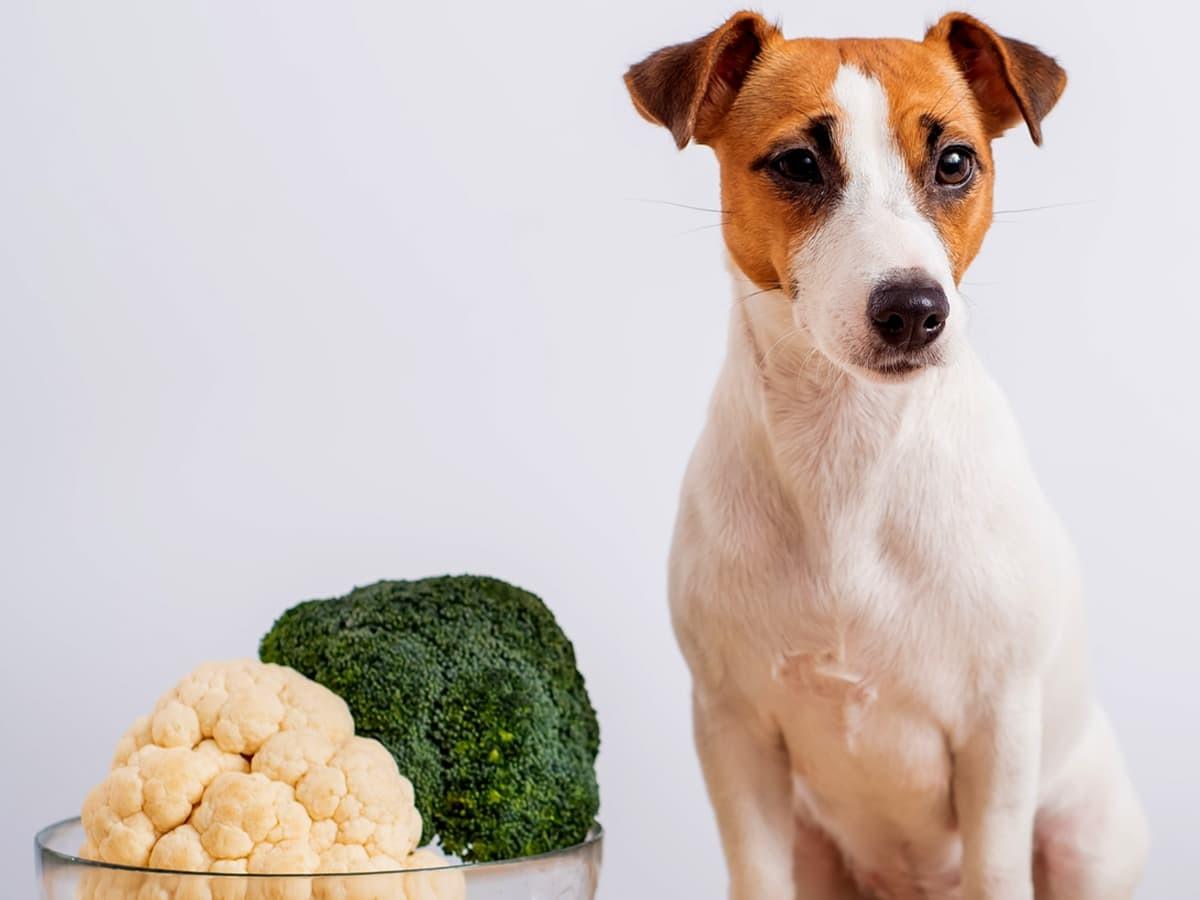While many delicious and healthy human foods can also be good for pets, that’s not always the case. It’s important to double-check whether a new food is safe before offering it to your dog. What’s healthy for humans doesn’t always provide the same benefits for our furry friends. However, some foods, like cauliflower, can be healthy for both you and your pup.
If you enjoy cauliflower for its many health benefits, you might wonder whether your dog can have some too. Before sharing, it’s worth looking into whether cauliflower is safe for dogs—and you may be pleasantly surprised by the answer.
In this article, you’ll learn whether dogs can safely eat cauliflower, the potential health benefits it offers, and how to prepare it properly for your pet.
At Spot Pet Insurance, we’re committed to helping you be the best pet parent possible. That’s why we’re here to answer your questions about which foods are safe and beneficial for your dog. Read on to find out everything you need to know about cauliflower and your canine companion.
Is It Safe for My Dog to Eat Cauliflower?
Yes, cauliflower is safe for dogs to eat, and it’s actually quite healthy. (We’ll get into the benefits in just a bit.)
That said, there are still a few things to keep in mind before adding cauliflower to your dog’s bowl. Start by offering a small amount to see how well your dog tolerates it. Not all dogs digest cauliflower the same way, and too much at once can cause an upset stomach or gas. If your dog seems fine after trying a small piece, you can slowly introduce it into their diet in moderation.
Think about your dog’s past experiences with cauliflower. Have they eaten it before on purpose or by accident? Did they enjoy it, or did it seem to upset their stomach? If your dog has had a negative reaction in the past, it’s best to avoid giving it again. Every dog is different, and some may be more sensitive to cruciferous vegetables like cauliflower.
If you’re unsure, ask your vet before making any changes to your dog’s diet. They can recommend how often to serve cauliflower and what portion size is appropriate based on your dog’s age, size, and health.
Are There Health Benefits to Feeding Your Dog Cauliflower?
Cauliflower can be a healthy, low-calorie treat for dogs when fed in moderation. It’s packed with beneficial nutrients, including:
Fiber
Vitamin C
Potassium
Vitamin K
Calcium
Folate
Here’s what these nutrients can do for your dog:
Cauliflower is rich in fiber
Fiber helps maintain digestive health and regular bowel movements. It can also help dogs feel fuller for longer, which is especially helpful for those managing weight or diabetes since fiber slows glucose absorption and prevents blood sugar spikes.
Cauliflower is rich in vitamin C
Vitamin C acts as an antioxidant that helps neutralize free radicals, supporting immune health and reducing inflammation and cognitive decline as dogs age.
Cauliflower contains potassium
Potassium supports muscle, nerve, and enzyme function while helping the body maintain a healthy fluid balance.
Cauliflower contains vitamin K
Vitamin K aids blood clotting and helps wounds heal properly. Though it’s often overlooked, it’s an essential vitamin for your dog’s health.
Cauliflower contains calcium
Calcium supports bone and tooth strength, muscle function, and proper nerve signaling. It may also help prevent conditions such as hypocalcemia and certain metabolic issues when added to a balanced diet.
Cauliflower contains folate
Also known as vitamin B9, this nutrient supports red blood cell production, DNA synthesis, and overall cellular function, which is important for growth and tissue repair.
Spot Pet Has Your Back
At Spot Pet Insurance, we’re here to help your pet live their healthiest, happiest life, and that starts with what goes in their bowl. Whether you’re curious about which foods are safe and nutritious for your dog or need guidance after your pup snuck a bite of something questionable, Spot Pet Insurance is here with answers you can trust. Because when you know better, it can lead to better care for your furry friend.
What Other Vegetables Can Dogs Eat?
Though our canine companions can't enjoy every food we can, several veggies are safe for both dogs and humans. We have compiled a list of all vegetables that dogs can eat for you! Dogs can eat various veggies you might have on hand, such as sweet potatoes, cabbage, eggplant, radishes, carrots, beets, corn, peas, potatoes, ginger, squash, pumpkins, zucchini, and so many more! All vegetables offer different nutritional values and benefits, so it’s always a good idea to talk to your vet before introducing your dog to different vegetables.

As Spot’s resident cat enthusiast, I am dedicated to researching and sharing information that helps pet owners take the best care of their pets. Pet ownership comes with it’s share of challenges, but my goal is to help make this journey easier.
The information presented in this article is for educational and informational purposes only and does not constitute or substitute for the advice of your veterinarian.
Flaws, Ashley. "Can Dogs Eat Cauliflower?" Daily Paws, 12 Aug. 2024, https://www.dailypaws.com/dogs-puppies/dog-nutrition/what-can-dogs-eat/can-dogs-eat-cauliflower.
Arnold, Victoria Lynn. "Can Dogs Eat Cauliflower?" PetMD, 01 Feb. 2023, https://www.petmd.com/dog/nutrition/can-dogs-eat-cauliflower.












